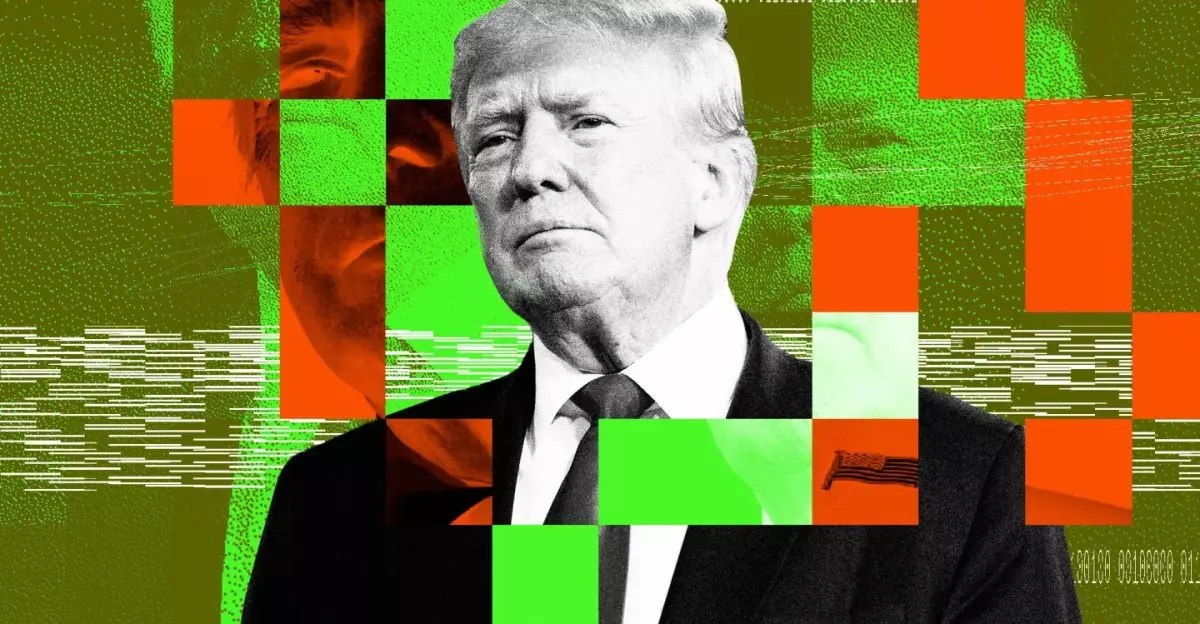The recent decision by the State Department to suspend student visa interviews has thrown a cloud of uncertainty over thousands of hopeful applicants. It echoes broader concerns regarding national security and the treatment of international students in the U.S., a country historically regarded as a beacon of educational opportunity. With this suspension, many students are caught in a bureaucratic limbo, jeopardizing their academic aspirations and undermining the reputation of the United States as a destination for higher learning. The implications of this unprecedented move extend beyond mere procedural hiccups; they represent a significant shift in immigration policy, heavily influenced by political considerations.
The Lawsuit: A Fight for Justice Against Administrative Overreach
In a compelling response to this dire situation, fifteen Iranian students and researchers have initiated a lawsuit challenging the Trump administration’s actions. They argue that the suspension violates the Administrative Procedures Act, which is designed to prevent arbitrary rule-making by government agencies. This lawsuit underscores a critical juncture in American jurisprudence and civil rights, as the students seek to hold the government accountable for its policies that seem designed to align with specific political ideologies rather than the principles of fairness and opportunity that underpin the American educational system.
The legal representation for the plaintiffs highlights a crucial point: these students have already navigated the initial phases of the visa process, including interviews, before being abruptly halted in their tracks. This disruption not only affects their immediate educational goals but also raises questions about the constitutionality of the government’s actions against specific nationalities, reflecting systemic biases that appear to target individuals based on their country of origin or political beliefs.
The Broader Impacts on International Relations and Education
The suspension of student visa interviews signals a wider trend reminiscent of past policies that have historically alienated international students. It feeds into a narrative of fear and suspicion, particularly toward individuals from Muslim-majority countries, as noted by their legal counsel. This chilling effect is likely to deter potential international students from pursuing their education in the U.S., opting instead for more welcoming environments elsewhere. As universities compete for top talent globally, America risks losing its standing as a leader in academic excellence and innovation.
Furthermore, the politicization of visa restrictions—evidenced by recent directives targeting not only Chinese students but also those involved in social activism—casts a long shadow over the academic landscape. When students are viewed through the lens of political allegiance rather than academic aptitude, the very fabric of educational inquiry is threatened. Academic institutions thrive on diversity of thought, yet these policies raise concerns about freedom of expression in university settings.
The Call to Action for Advocacy and Reform
In light of these developments, a collective call to action emerges for advocates of international education and civil liberties. It has become crucial for stakeholders—students, educators, policymakers, and citizens alike—to mobilize against these restrictive measures. The implications of these visa suspensions reach far beyond the individual students affected; they touch upon core American values and the principles of open dialogue and acceptance. If the U.S. intends to maintain its status as a global leader in education, systemic reforms are essential to ensure that the doors of opportunity remain open to aspiring scholars from all backgrounds.
As this situation continues to unfold, it is imperative that the conversation surrounding international student visas moves toward a more equitable framework—one that values diversity and academic merit over political affiliation. The future of America’s educational landscape largely hinges on how effectively we can advocate for policies that embrace inclusivity and freedom of thought.


Leave a Reply